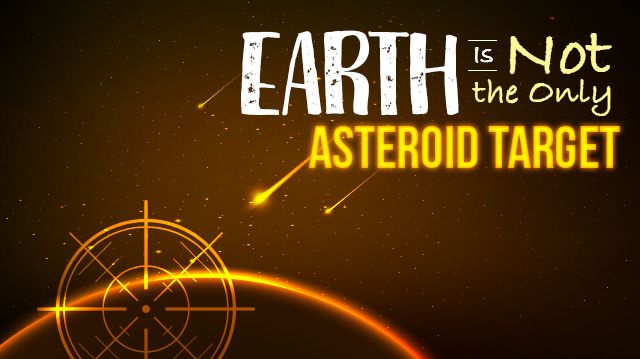Considering all the space rocks buzzing about the universe we can expect the occasional collision. What we generally don’t expect is for amateur astronomers to record these collisions using their own personal telescopes and report them via YouTube, which is exactly what has happened.
On March 17, Gerrit Kernbauer of Mödling, Austria spent the evening filming Jupiter through his 20-centimeter Skywalker telescope. You can purchase the same telescope for just over $700. Upon reviewing the footage, Kernbauer noticed a bright spark on the planet. The spark was on and off in no more than a second, but it caught the amateur astronomer’s eye. The image made him think of a 1994 collision recorded by NASA.
“Thinking back to Shoemaker-Levy 9, my only explanation for this is an asteroid or comet that enters Jupiter’s high atmosphere and burned up/exploded very fast,” Kernbauer wrote.
He uploaded the video to YouTube and soon had over 1 million views.
As though one random citizen sighting weren’t enough, the footage has been confirmed by a second videographer. John McKeon shot the same event from his 28-centimeter telescope from just north of Dublin. This confirmation makes the light very unlikely to be a video abnormality or random interference.
The videos caught the attention of Slate’s resident astronomer, Phil Plait, who confirmed the collision and Kernbauer’s assessment that the incoming object might be a small asteroid or comet. He further estimates that Jupiter is hit by a large enough mass at sufficient speed to be seen from Earth about once a year. We often miss these collisions. Even with modern advances in technology that allow amateur astronomers to record such events, identifying these tiny blasts of light that fall during hours of uneventful footage is no small feat.
Jupiter is a good place to go looking for a collision, The planet’s gravity pulls in small objects that might simply pass by a less massive rock. Gravity also causes these objects to speed up before entering the planet’s atmosphere. They are thus more likely to come crashing down to the planet at speeds that create strong enough collisions to be visible from Earth.
This new footage and interest in the planet comes at an exciting time for Jupiter enthusiasts. NASA’s Juno spacecraft is set to arrive at Jupiter on June 4. Its official mission is to help scientists “understand [the] origin and evolution of Jupiter, look for solid planetary core, map magnetic field, measure water and ammonia in deep atmosphere [and] observe auroras.”
Of equal interest to citizen astronomers is the JunoCam. NASA envisions the JunoCam to be a public space camera more than their own personal set of eyes on the gas giant. Amateur astronomers are invited to upload their own images of Jupiter and contribute to the discussion of toward which features JunoCam should direct its advanced imaging system.
Submitted photos will also help scientists to tease out additional Jupiter-related information when used in association with the JunoCam. “In between our close Jupiter flybys, Juno goes far from the planet, and Jupiter will shrink in JunoCam’s field of view to a size too small to be useful for choosing which features to capture. So we really are counting on having help from ground-based observers,” the camera team reports.
—Erin Wildermuth
Erin is a freelance writer, photographer and filmmaker. She is passionate about moving beyond party politics to identify pragmatic solutions to social, economic and political problems. Her writing has appeared in the Washington Times, the American Spectator, Doublethink and Scuba Diver Magazine. She spends her free time scuba diving, snowboarding and ravenously reading popular nonfiction. Erin holds a master’s degree in International Political Economy from the London School of Economics.
Sources:
http://www.cnn.com/2016/03/30/world/object-hits-jupiter-irpt/index.html
http://www.slate.com/blogs/bad_astronomy/2016/03/29/jupiter_hit_by_asteroid_or_comet_in_march_2016.html
http://www.universetoday.com/128147/jupiter-smacked-comet-asteroid
https://www.youtube.com/watch?v=4LiL7RYG7ac&feature=youtu.be
https://www.youtube.com/watch?v=qAJI4gqX3Zg&feature=youtu.be

